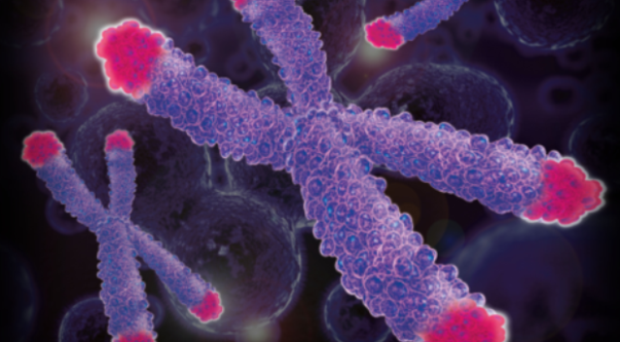
The prevalence of overweight and obesity is rising worldwide, including women of reproductive age. There is also growing evidence that high maternal pre-pregnancy body mass index (BMI) may influence fetal metabolism and physiology.
In 2010 at the Centre for Environmental Sciences at Hasselt University we started the prospective birth cohort ENVIRONAGE (the acronym emphasizes the ENVIRonmental influence ON AGEing in early life). Our main interest is studying environmental factors that are operative during the in utero life and their potential influence on molecular markers of ageing.
When I joined this research group in 2013, I started my research on telomeres, which are the protective caps at the end of the chromosomes. Telomere length is a generally accepted biomarker to study biological ageing and shortened telomeres have been associated with ageing-related diseases. The discovery on how chromosomes are protected by telomeres and the enzyme telomerase was awarded a Nobel Prize in Physiology or Medicine in 2009 for Elizabeth H. Blackburn, Carol W. Greider and Jack W. Szostak.
Telomeres and telomere biology is an extensive research topic in experimental, clinical and epidemiological settings. When looking at epidemiological studies, telomeres have mostly been investigated in adult individuals, whereas research on newborn telomere length remains rather limited.
Why study telomere length at birth one could ask? In my opinion, the main reason is that later life telomere length and potential life expectancy may be determined by this initial telomere length and by the attrition rate throughout an individual’s life.
Telomere length at birth is very variable among newborns, which is intriguing as it suggests that newborns have a wide biological age range. What are the main factors that contribute to the setting of telomere length at birth? Is it heritability alone? Or are there, just like what has been found in adult studies, environmental factors influencing initial telomere length?
In this recent study, I found that higher maternal pre-pregnancy BMI is associated with shorter telomere length at birth. In a subset of the ENVIRONAGE birth cohort (including 743 mother-newborn pairs) both placental and cord blood telomeres were negatively associated with pre-pregnancy BMI, independent of different potential confounders.
The results of this study indicate that maternal pre-pregnancy BMI as an in utero factor may contribute to initial telomere setting which may have consequences for later life health and disease. We estimated that each unit increase in maternal pre-pregnancy BMI corresponds to a loss of 1.1 to 1.6 telomere year equivalence in adulthood. This estimation should be interpreted within its limitations, as it is based on absolute cord blood telomere lengths of other published studies, and it is based on attrition rates observed in adult populations.
Nevertheless, our research team and I were a bit surprised by the fact that a relatively small change in maternal pre-pregnancy BMI was associated with a relatively strong change in newborn telomere length.
After seeing these results I think we should encourage mothers and fathers to aim living towards a more healthy lifestyle and we hope that people become more aware of the fact that having a healthy weight is not only beneficial for themselves but also for their offspring.
Finally, I think that the identification of environmental factors that contribute to initial telomere length and which can easily be changed, such as living towards a more healthy weight, may increase life expectation and reduce later life comorbidities in future generations. And it is my belief that research on in utero exposures and potential adverse health effects in the newborn will make people more aware of the fact that we do not only have to take care for ourselves and offspring after birth, but that even before and during pregnancy our newborns might benefit from our healthy way of living.
Comments